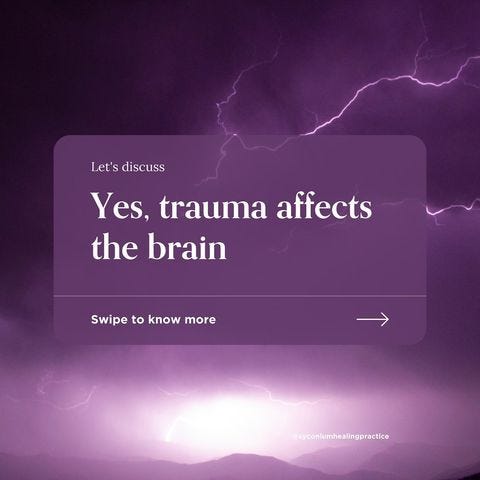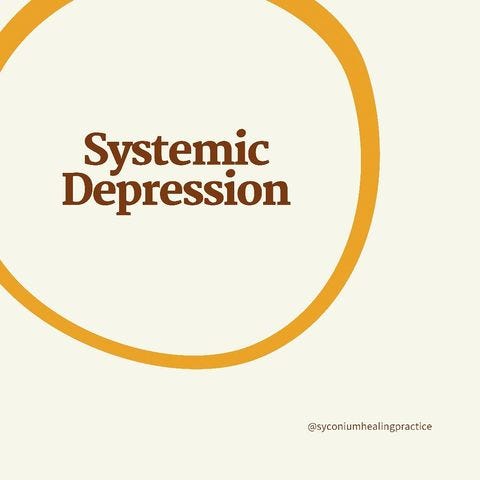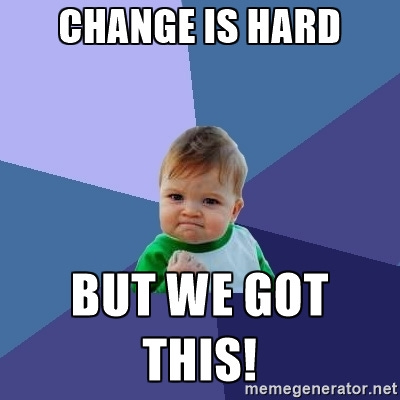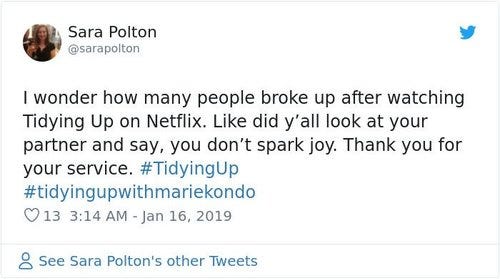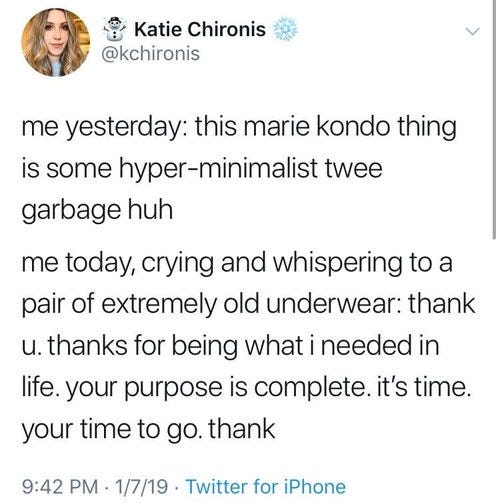How I Work
Theory, Practice & Purpose
Early in grad school, students are tasked with choosing their theoretical orientation by flipping through a textbook of summaries. Rarely does the first choice stick but it is a helpful orienting process to see how different lenses have unique ways of processing the same issue. Watching the “Gloria” sessions with 3 unique theoretical orientations highlighted that difference for me (if you’re a psych nerd, you’ll love to see this). For me, I knew HOW I wanted to work but didn’t know what it was called - until a therapist friend introduced me to Alfried Langle’s Existential Analysis. Both in theory and practice, I resonated deeply with the themes of authenticity, inner consent, freedom & responsibility and honouring the noetic (spiritual) connection of clients.
But I couldn’t choose just one theoretical orientation because one size doesn’t fit all. Each theoretical orientation has both strengths and limitations and you are too expansive to be contained within a singular modality.
My practicum site, for example, was solely Solution-Focused therapy (SFT) which I enjoyed as a Capricorn sun being able to provide tangible pathways towards change but the Achilles heel of SFT is it is wholly incompatible with grief - with any complex experience that doesn’t have easy answers, really. It doesn’t mean SFT is an inherently “bad” theory but it isn’t the whole picture, certainly. Both things can be true.
Through my 7 years as a practicing psychotherapist, I intentionally aligned myself with orientations - both in theory and in practice - that had space for the full spectrum of our humanity. For me, these theoretical orientations are not rigid ways of experiencing the world but are different lenses to view the same landscape of your psyche with. Ram Dass said it best, captured in this video below.
In my work, my focus is always on building understanding. I think that when we understand what we’re experiencing, we can interact with it more consciously. If I have a stomach ache from an allergy or food poisoning, my response will be different because those two things require a different response. If we work together 1:1, in courses or workshops, we’ll practice:
Talking - by processing through externalization, we let the psychological complex visiting you to move through you so it isn’t taking up space within you. Instead we hold it in our hands, just as Goku holds the dragon ball in front of him (if you can’t tell I’m a 90s babe, now you know).
Identification - through the process of externalization, we depersonalize the experience - as in, we release you from the shackles of self-blame and instead zoom out to identify the larger patterns that may be repeating from your own life, past life or an unfinished ancestral task.
Connection - by being heard and witnessed, the complex naturally leaves your body because the message it was sent to deliver has been heard as we connect the dots between past pain and present experiences.
I ask a lot of questions because I want to know what your unique experience is. My favourite questions usually sound like:
Where do you feel this (sadness) in your body?
Is it coming from within your body or does it feel like it’s coming from outside your skin?
Is this a familiar feeling? When have you felt it before?
When you hear yourself say (cue inner critic narrative), is there a memory that arises for you, a sensation you feel in your body or a phrase that comes to mind?
You deserve to be the expert of your own life. And also, you're here for a reason. There's something you can't figure out on your own. You have all the answers within you - we just need to learn the language of your Body to interpret the wisdom you already hold.
Here are a few details about the theories and practices that shape my work - zoom in on the Venn diagrams below to learn more. The theory is my investigative lens, the posture I hold as a therapist. The practice is what you’ll notice in session, the questions I ask, the pathways we take together.
Theory
TRAUMA-INFORMED CARE
Trauma-Informed Care (TIC - therapists love abbreviating literally everything, if you haven’t noticed) is the petri dish in which all my work grows, crossing between both theory and practice, because it isn’t enough just to know about trauma. From a theoretical perspective, this means identifying what trauma is, the impacts of trauma on your past and present and understanding how healing happens. In practice, this means creating safety within your own skin, learning to identify & respond to your trauma responses and relate to power dynamics consciously, without retraumatizing yourself.
Here’s a run-down of how trauma might be affecting your brain (yes - I cannot say “run-down” without thinking of the Charles-Jim interaction Season 5 Episode 23 of the Office).
ATTACHMENT THEORY
Within the framework of TIC, we zoom in to your attachment style and the impacts, both past and present, on the development of your psyche. The ethos of my attachment work is hold space for the Both-And, to have context without justification. We understand the formation of who you are is deeply entwined with your early experiences, the schemas created in your childhood.
The connection between attachment work and systemic lens within a trauma-informed framework can be exemplified in working with the group trauma of genocide of Indigenous peoples that have impacted individual people and whole people groups from systemic exploitation.
For more on Cosmic Debt and how it might be impacting you, take a look here and and here.
SOMATICS
Change happens in your Body so healing has to too. We move at the pace of your Body and listen to the cues your body brings. If something feels too much, we listen to the boundaries of your body. We won’t push your body past their sense of safety and instead scaffold towards a trusting relationship between you and your Body. Our relationship with our Body is just like any other - it requires, time, space, experience and curiousity. That’s what we’ll cultivate in our work together.
SYSTEMIC LENS
For me, trauma-informed care has to be grounded in a systemic lens to fully honour the exploitive power dynamics of systems of oppression. The Big 3 are capitalism, patriarchy and white supremacy and nestled within those are colonialism, ableism, homophobia, transphobia, fatphobia and other systemic violences. To be fully trauma-informed, we have to address the macro impact of group, cultural trauma because otherwise we are fractioning real experiences.
To learn more about my systemic orientation, try reading this.
SPIRITUAL NOETIC
Every aspect of my work honours the fullness of your Being, including your spirituality - however that looks for you. I define spirituality as HOW and WHY we connect with our Selves, others and the world. If you feel most connected to your self dancing at a club, that’s spiritual. If you feel most connected to others rewatching the same show you love for the 100000000 time, that’s spiritual. If you feel most connected to the world picking up rocks that you think are pretty and adding them to a never-ending collection, that’s spiritual. That means we can bring in astrology, tarot, spiritual / cultural practice - depending on your preferences.
Practice
TRAUMA-INFORMED CARE
In practice, my TIC is oriented around making the implicit, explicit. You’ll know what to expect because trust is built through transparency. You have a lot of evidence not to trust someone (anyone) so, as adrienne maree brown says, “we move at the pace of trust”.EXISTENTIAL ANALYSIS
In practice, a framework of Existential Analysis is perpetually curious about your experiences for yourself. You are the expert of your own life and only you know what your unique experience of that life is like. I want to know what your life is like. We’ll bridge our deepest existential fears (annihilation) with our most existential needs (belonging, meaning, purpose) to create an authentic life that you can consent to.SOLUTION-FOCUSED THERAPY
Solution-focused therapy is often a reductive approach to life’s complex experiences. The way I like to integrate Solution-Focused Therapy is to bring tangible, practical aspects into what can be intangible work of healing. The inner change we want happens in many small steps so we make those small steps together. This usually looks like “homework” so you can integrate the healing between sessions. Sometimes the “homework” is watching a movie from your childhood, journalling about your experiences, having a shower in candlelight - it’s enjoyable homework I promise. Partnered with the depth therapy of Existentialism, solution-focused techniques add to our work, instead of minimizing your experiences.NARRATIVE THERAPY
We know that the part of therapy that “works” is naming our experiences. When we identify and name our experiences, we are better able to interact with those experiences with consciousness. We’re able to externalize our story and experience it more objectively. We also know cross-culturally that storytelling has an inherent healing element. Within the therapeutic context, we create a holy witnessing of your story to dispel any shame attached to it.As a literary word nerd, I also like to integrate etymology inquiry into our narrative work. The words we use so often to describe our experiences have specific origins that we can learn more about. If we use the word ‘fatigue’ we can be curious about the origin, which involves a ‘splitting’ and ask what parts of you have split apart from the fatigue?
SPIRITUAL / NOETIC
Every aspect of my work honours the fullness of your Being, including your spirituality - however that looks for you. I define spirituality as HOW and WHY we connect with our Selves, others and the world. If you feel most connected to your self dancing at a club, that’s spiritual. If you feel most connected to others rewatching the same show you love for the 100000000 time, that’s spiritual. If you feel most connected to the world picking up rocks that you think are pretty and adding them to a never-ending collection, that’s spiritual. That means we can bring in astrology, tarot, spiritual / cultural practice - depending on your preferences.
My purpose in working with you (because we are cocreating together) is to:
create more space for the expression of your authenticity
internalize your own authority
create a life in alignment with your own values
And all of that means CHANGE. In working with clients 1:1, in courses or workshops, I always warn them that through our work, big change happens. Not because of anything I do, but because we create permission for you to create the change in your life you’ve always wanted - maybe even needed. Sometimes this change is purely internal - maybe people you’ve known for your whole life won’t recognize you anymore. They don’t need to. Sometimes this change overflows to your external world - clients have broken up with their partner, left their toxic job, moved to a more aligned location. Again, this isn’t anything I’m concocting - it is YOUR change that you bring about for yourself. We just create the space for that change to actually happen. If you want to work with me, be prepared for y our life to change, for you to change.
As humans, we naturally resist change because it is unknown. One of the seminal ethos of my work is identifying what is normal, safe and familiar for you - because we are always recreating our childhood environment, whether we mean to or not). We first understand WHY (not just what) because these coping strategies that bring you here have served a purpose, they’ve kept you safe. They just may have reached their expiry date. What worked to keep you safe as a child isn’t relevant anymore but these coping strategies have also been WITH you for your whole life - even if maladaptive, they have been your companion. In the healing process, we are not here to enact more violence on your psyche. We are not here to throw away your coping strategies - we are here to compassionately identify the purpose they served and gently lay them to rest.
This is what I call Marie Kondo Healing. If you haven’t seen Tidying Up on Netflix or read her book, “The Life Giving Magic of Tidying Up”, I highly recommend. What I love most about Marie Kondo’s work is her gentility. Most other house cleaning shows are swift and quite violent, ripping away possessions in rigid piles that require linear, decontextualized decisions. Kondo’s work is slow and intentional - before doing any tidying up, she introduces herself to the house. This traditional Japanese practice acknowledges the spirit of the home (which in Jungian analysis represents the psyche). In the cleaning up process itself, Kondo has the participant hold each item and if it no longer sparks joy (if it is no longer relevant - as in, if your coping strategies have reached their expiration date), they offer the piece gratitude for all the memories they’ve shared together and gently piles it to go to the local charity shop.
This slow process of identifying and holding space creates room for the participant to make a free and authentic choice. We get to do the same process with coping strategies that have reached their expiration. We hold them gently, offer gratitude for all they have served you (how they’ve protected you, kept you safe, even if it’s not working anymore) and put them down. Obviously as a metaphor it sounds much simpler than it is in reality but suffice to say that we take our time and move at your body’s pace. We won’t take away a coping strategy that’s worked without introducing other ways of processing.




